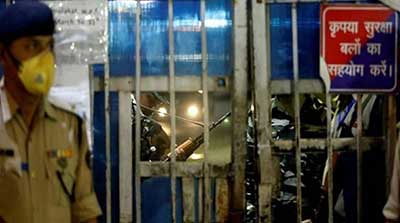Date: 13/01/2023
Relevance: GS-2: Welfare schemes for vulnerable sections of the population by the Centre and States and the performance of these schemes; mechanisms, laws, institutions and Bodies constituted for the protection and betterment of these vulnerable sections.
Key Phrases: Prison, Supreme Court, Marginalised, Bail, Jails, Cognizable Offence, Under Trial, Prisoners, Imprisonment, Mulla Committee, Prison Reforms.
Context:
- Delhi’s Lieutenant Governor recently asked the Delhi Development Authority to allocate 1.6 lakh square meters of land to build a new prison complex on the outskirts of the national capital.
- This has raised the debate that-Does India Need New Prisons or Needs Prison Reforms?
Key Highlights:
- President at the Constitution Day celebration organised by the Supreme
Court mentioned in her speech the following:
- “I hear these days that we will have to make new prisons because prisons are overcrowded. If we are moving towards progress as a society, then”. why do we need new jails? We should be closing down the existing ones
- The president underlined the fact that the wheels of justice hardly move for the poor and marginalised in this country.
- The president also addressed the reason why India’s prisons are full of
those from disadvantaged sections.
- A good number of these sections are incarcerated for minor offences but they languish in jails because their families cannot afford the cost of bail bonds or even litigation.
Why Prison Reforms are important?
- Problem in Indian Prison:
- Prison overcrowding is one of the key contributions to poor prison conditions.
- Prolonged detention of under trial prisoners.
- Inadequate social and rehabilitation program.
- Lack of legal aid availability for marginalized prisoner.
- Lack of manpower, poor training and corruption.
- Poor healthcare and welfare amenities, inhuman approach of prison staff among others.
- In Satender Kumar Antil vs. CBI (2022), the Supreme Court noted that:
- The majority [of under trial prisoners] may not even be required to be arrested despite registration of a cognizable offence, being charged with offences punishable for seven years or less.
- In the case Katar Singh V. State of Punjab, it was declared that right to speedy trials is an essential part of Fundamental right to life and liberty.
- Article 14 (3) (C) of The International Covenant on Civil and Political Rights (ICCPR), states that an accused has right to be tried without undue delay.
- Data from the Prison Statistics of India 2021 report of the National
Crime Records Bureau show that:
- More than 77 per cent of jail inmates are under trials and every year this number goes up.
- The under trial prisoners in Indian jails registered a 15 per cent increase from 3.72 lakh in 2020 to 4.27 lakh in 2021.
- The same data set also records 25 per cent of this prisoner population as being illiterate.
- In the absence of data on the economic standing of prisoners, education level and social backgrounds can be used for measuring the degree of backwardness and vulnerability.
What Should Be the Approach For Reforms?
- The Supreme Court has outlined three broad principles regarding
imprisonment and custody:
- First, a person in prison does not become a non-person.
- Second, a person in prison is entitled to all human rights within the limitations of imprisonment.
- Third, there is no justification for aggravating the suffering already inherent in the process of incarceration.
- Some of the prominent recommendations of Mulla Committee are:
- The focus must be on the human rights of prisoners besides improving their amenities.
- Under trial in jails to be reduced to the bare minimum and they be kept away from convicts.
- The focus must be on Rehabilitation and reforming of offender.
- The Government should make an effort to provide adequate financial resources. (The Mulla Committee).
- The Krishna Iyer Committee-There should be necessary provision to restore the dignity of woman even if convicted under criminal code. Therefore, all prison officers should be women in case of woman offender.
- The United Nation Standard minimum rules for the treatment of
Prisoners (The Nelson Mandela Rules).
- The Rules are based on obligations to treat all prisoners with respect for their inherent dignity and values as human beings and to prohibit torture and others forms of ill- treatment.
Conclusion:
- The criminal justice system is based on four pillars — Deterrence, Retribution, Prevention and Reformation.
- Knowingly or unknowingly, ours seems to be inclined towards seeking revenge from those charged with punishable offences.
- Prison reform is not just about prison building, but what goes on inside them needs to be changed. The focus must be on human rights of prisoners besides improving their amenities.
- As John Brittas writes: The criminal justice system, marked by bias against the underprivileged and violation of prisoners’ rights, must be overhauled.
Source: The Indian Express
Mains Question:
Q. The criminal justice system, marked by bias against the underprivileged and violation of prisoners’ rights, must be overhauled? Discuss (250 words)






















